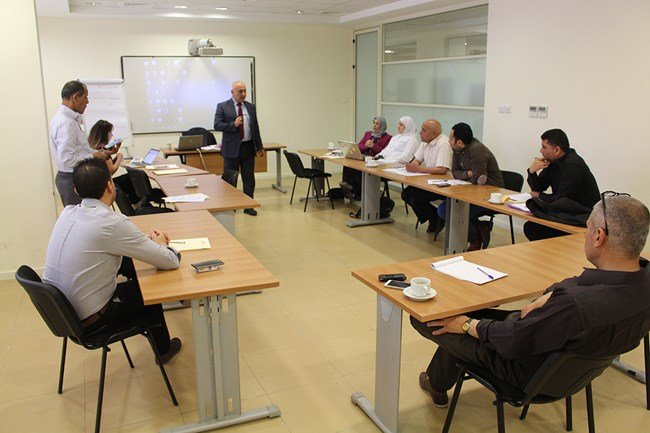Image:

21 May 2017
Amman -- The Jordan Media Institute (JMI) has announced the launch of a code of conduct and general editorial policy for local community radios, taking into consideration the special nature of each radio, depending on its surrounding environment. This took place at the conclusion of a workshop, in which managers and employees in a number of local community radios took part.<br />
<br />
The workshop, held by the JMI on editorial policies and codes of conduct for radios, today, Tuesday, is within the project of building the capacities of local radios, in partnership with the Support to Media in Jordan program, implemented by UNESCO with funding from the EU, to build the capacities of workers and volunteers at six participating community and local radios in the governorates of the Kingdom. <br />
<br />
The participants in the two-day workshop stressed the importance of having an ethical system for radio work to control the conduct of workers and their relationship with society, the public, and sources, based on the general ethical principles of the profession of journalism. Workers at radios should abide by this system when doing news coverage and presenting programs.<br />
<br />
JMI Dean Dr. Basim Tweissi, who attended part of the workshop, presented the third phase of the project, which includes helping these radios to develop and produce 18 radio programs, three for each radio, and produce two joint programs between all participating radios. <br />
<br />
Dr. Tweissi noted the readiness to produce the two programs in the coming days. They are "Radio Magazine" and "Verify," which reveals fabricated and misleading news. He pointed out that the two programs were selected according to the document of radio programs, which is the roadmap for the coming programs and which came as a result of several meetings, discussions, and conversations with experts and concerned people. <br />
<br />
The workshop included a brainstorming session on the legal and ethical controversy over journalistic work, presented by Dr. Sakher Khasawneh, professor of media legislation at the JMI, with the aim of supporting ideas when preparing the code of conduct and designing the editorial policy. <br />
<br />
The participants discussed with the facilitator, Omar Assaf, the key pillars of the editorial policy of their radios and its importance in determining the general identity and editorial line of its work. This is in addition to the importance of providing a code of conduct that shows the ethical principles for workers in radios.<br />
<br />
Nihad Jariri, director of the project, said that since the beginning of 2017, the JMI has carried out 115 training programs throughout the governorates of the Kingdom on producing field radio reports and preparing and presenting newscasts. This is part of its comprehensive training plan, which is based on an assessment study conducted by a team of experts. The aim is for the participating local and community radios to actually benefit and for this to reflect on their performance through developing the capacities of their workers. Around 150 people are expected to benefit from the training programs.<br />
<br />
The target radios are Sawt Al Aqaba, Sawt Al Janub, Sawt Al Karak, Tafila Technical Radio, University of Jordan, and Yarmouk FM.<br />
<br />
It is worth noting that the JMI has started receiving applications for the MA program in Journalism and New Media for the year 2017/2018 until 6 July. For more information, please visit the website of the JMI at www.jmi.edu.jo or call the following numbers + 962 6 5713304/6.<br />



